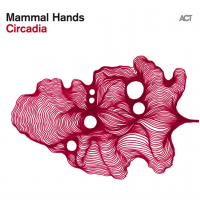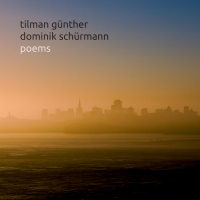Home » Jazz Articles » Album Review » Octobop: After Dark
Octobop: After Dark
Whatever one chooses to call it, the melodic and rhythmic temperament that characterized West Coast jazz has been reclaimed and given new life by Octobop, an eight-member ensemble founded by saxophonist Geoff Roach, whose third album, After Dark, is a new-millennial version of what jazz enthusiasts on the Third Coast were hearing and appreciating some forty or fifty years ago at the world-renowned Lighthouse and other near-Pacific venues.
Ironically, Roach patterned Octobop on an East Coast group, the legendary Miles Davis nonet of 1949-50 that produced the recordings that would come to be known as "the birth of the cool." Composers and arrangers on the West Coast, taking their cue from Davis, began blending the new sounds into their repertoire, thus giving birth to the West Coast "sound." It is that unique sound that Octobop warmly embraces, nudging it forward in sleek new arrangements that pay homage to the originals without slavishly imitating them.
Like the celebrated Mulligan/Chet Baker quartet and some other West Coast groups, Octobop is piano-less, with guitarist Jack Conway and vibraphonist Bill Hazzard providing the counterpoint for the four-horn front line (Roach, saxophonist Matt Kesner, trumpeter Randy Smith, trombonist Mike Humphrey) while bassist David Kopf and drummer Roy Kaufmann keep the rhythm on a steady course.
The songs chosen are for the most part representative of the West Coast period, with only one new composition, bassist Steve Swallow's "Thinking Out Loud." There are two numbers by Henry Mancini, one each by Mulligan, Rogers and Cy Coleman, two numbers ("Relaxin'," "Broadway") from the Al Belletto sextet's book, two standards by Rodgers and Hart, Giuffre's "The Duke You Say!" and Jerome Kern's "The Way You Look Tonight." Octobop plays them coolly but not without ardor. Solos, even though several notches below Mulligan, Pepper, Rogers, Shank, Rosolino, Baker and the others, as one would expect, are consistently respectable.
Without waxing nostalgic, I believe the heyday of the West Coast sound was a benchmark in the annals of jazz, and it's good to know it hasn't been forgotten. Long live Octobop, and long live the music on which it is based.
Track Listing
Playboy Theme; Dreamsville; The Duke You Say!; The Way You Look Tonight; Relaxin
Personnel
Octobop
band / ensemble / orchestraGeoff Roach, baritone, alto sax, alto flute; Randy Smith, trumpet, flugelhorn; Matt Kesner, alto, tenor, soprano sax; Mike Humphrey, trombone; Bill Hazzard, vibes; Jack Conway, guitar; David Kopf, bass; Roy Kaufmann, drums.
Album information
Title: After Dark | Year Released: 2005 | Record Label: Mystic Lane Records
Tags
About Octobop
Instrument: Band / ensemble / orchestra
PREVIOUS / NEXT
Support All About Jazz
 All About Jazz has been a pillar of jazz since 1995, championing it as an art form and, more importantly, supporting the musicians who make it. Our enduring commitment has made "AAJ" one of the most culturally important websites of its kind, read by hundreds of thousands of fans, musicians and industry figures every month.
All About Jazz has been a pillar of jazz since 1995, championing it as an art form and, more importantly, supporting the musicians who make it. Our enduring commitment has made "AAJ" one of the most culturally important websites of its kind, read by hundreds of thousands of fans, musicians and industry figures every month.




















